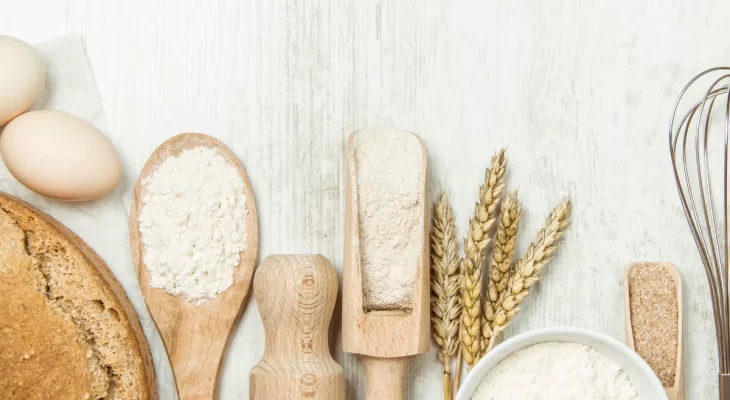
Is Organic Flour Better?
The answer to this question is largely subjective. Many believe that organic flour is better than conventional flour because it is grown without pesticides and chemicals, and its production process often uses fewer resources. Additionally, organic flours are higher in some nutrients, such as iron and zinc, than non-organic flours.
However, not all organic flours are created equal. Some organic flours may contain added sugars, fats, and other additives that could potentially be unhealthy. Therefore, it is important to read labels carefully before purchasing any organic flour to ensure you get the best quality product.
These are the reasons organic flour is better:
1-Organic flours are free from pesticides and chemicals
Have you ever wondered what substances are added to different flour types? Conventional flour may contain residues of pesticides, herbicides, and other chemicals used during the production process. Organic flours are grown without such additives, making them a healthier option.
The added advantage is that organic farming practices help preserve the environment by reducing pollution and encouraging biodiversity.
2-Organic flours are higher in nutrients
Organic flours contain more vitamins and minerals than non-organic flours, such as iron, zinc, magnesium, and vitamin B12. Eating richer in these essential nutrients can help keep your body healthy and strong.
3-Organic flours are often more flavorful
Because organic flours are typically fresher than conventional flours, they tend to be more flavorful and aromatic. This makes them a great choice for cooking and baking! You can still add your favorite spices and seasonings to enhance the flavor.
Does organic flour make a difference in baking?
The answer to this question depends on the type of baking you’re doing. For example, if you’re making bread, using organic flour can make a difference in texture and flavor. On the other hand, for cakes and cookies, you may not notice much difference when using either organic or non-organic flour.
When it comes to other forms of cooking, such as pasta, risotto, and sauces, many people feel that organic flour is superior in terms of flavor and texture.
Why is organic flour more expensive?
Organic flours are more expensive than conventional flours because the production process is more resource-intensive. Organic farming requires more labor and capital, which leads to higher prices for organic products. Additionally, organic farms often sell their products directly to consumers, as opposed to wholesalers or supermarkets, increasing the cost of these items.
There are various ways to choose the best organic flours. The most important factor is to read the labels carefully and ensure that you buy a quality product free from additives or preservatives. Additionally, comparing prices between different brands is always wise to get the best deal possible.
Conclusion
Ultimately, the decision of whether or not organic flour is better for you is up to you. It is important to consider the source of your flour and any added ingredients when making a choice. Investing in a higher quality product that can offer nutrients, flavor, and peace of mind may be worth it. These steps can help you make the most informed decision about your health and lifestyle.






















